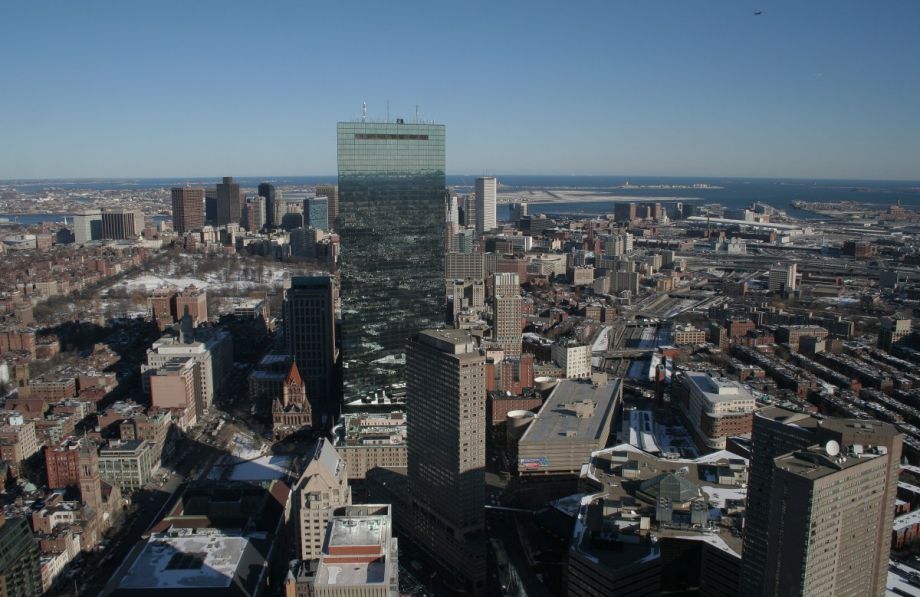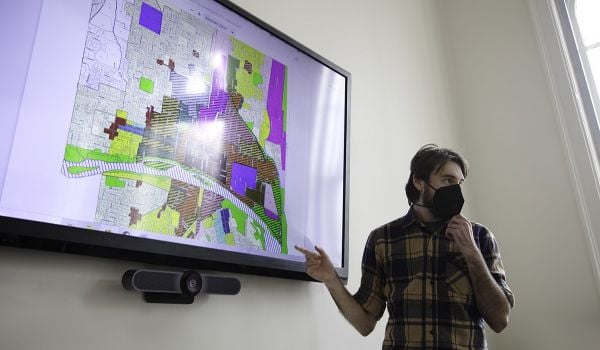Boston’s in the midst of a debate that touches on everything from city revenues and state laws to housing and public parks. At the center of it all: one tower that would rise over 700 feet on prime, central real estate currently home to a shuttered garage. It would be one of the city’s tallest buildings.
Ever since the city turned the property over to the powerful Boston Redevelopment Authority, there’s been raised eyebrows, and as teams proposed designs and bid on the project, people have voiced concerns about the benefits and the downsides of the development.
One of the hurdles the city is currently facing is a decades-old Massachusetts “shadow law,” and according to Boston Globe columnist Adrian Walker, Mayor Marty Walsh will ask for an exemption — with clear one-time-only limits. The law dictates the height of new buildings in terms of the shadow they cast on central parks Boston Common and the Public Garden.
If built, the high-rise will cast shadows on the parks. However, with millions of dollars for the city at stake, Walker, in a Feb. 12 column, writes that the former is not a real problem when compared to the good the money could do for parks maintenance and public housing. Of the revenue from the sale, the Boston Housing Authority would get $35 million and the Parks Department $67 million.
That’s why Walsh plans to ask City Council and the state legislature to exempt the project from the shadow law, the Globe reports. In exchange, the administration will promise to put strict limits on the height of other new buildings near the park.
Laws that limit shadows may seem frivolous, especially when a city is in need of something dire like housing — and Walker’s story frames the dilemma as pitting “poor people against shadows.” But Boston isn’t the only city that’s wrestled with, or litigated against, the shade cast by tall buildings. As Sarah Laskow wrote for Next City in 2015, questions of “light and air” have driven the zoning process in New York for the past century.
Financially, it’s in a developer’s best interest to turn every inch of the vertical space they’re purchasing into usable space — but for pedestrians and everyone who has to navigate streets cast in gloom, tall buildings don’t necessarily make for the most pleasant cities. Historically, in New York at least, that interplay between development and public interest has taken the form of innovative design, like say, the “wedding cake” building, which is exactly what it sounds like.
That still holds true today.
In theory, at least, it is possible to build tall without casting deep, dark shadows on the street,” Laskow wrote. “And architects and planners have new tools to play with too. Since the last time the zoning code was significantly updated, simulation software has made easy a previously tedious task: projecting how a proposed building design will cast shadows down onto city.”
In Boston, it sounds like the perks really do outweigh the shadow. But for other cities wrestling with access to light, it’s helpful to know that workarounds can be achieved, and density doesn’t necessarily have to mean ground-level gloom.

Rachel Dovey is an award-winning freelance writer and former USC Annenberg fellow living at the northern tip of California’s Bay Area. She writes about infrastructure, water and climate change and has been published by Bust, Wired, Paste, SF Weekly, the East Bay Express and the North Bay Bohemian
Follow Rachel .(JavaScript must be enabled to view this email address)
















